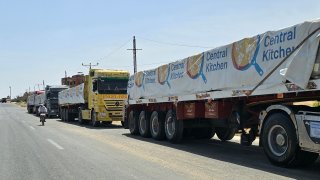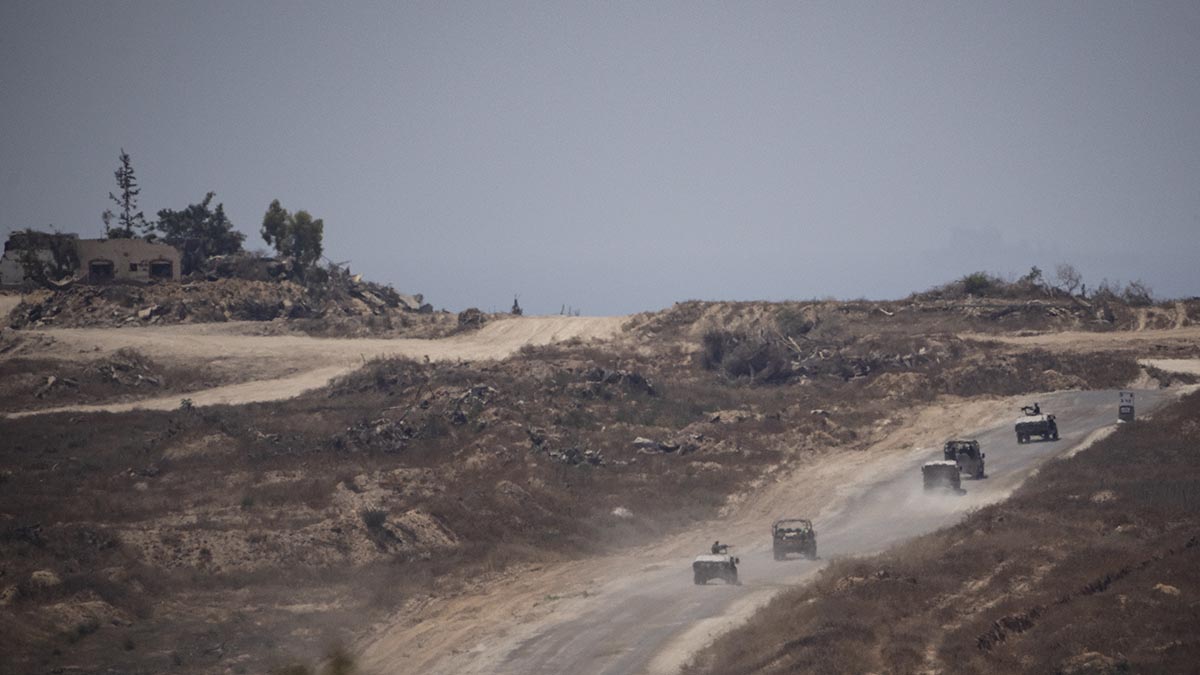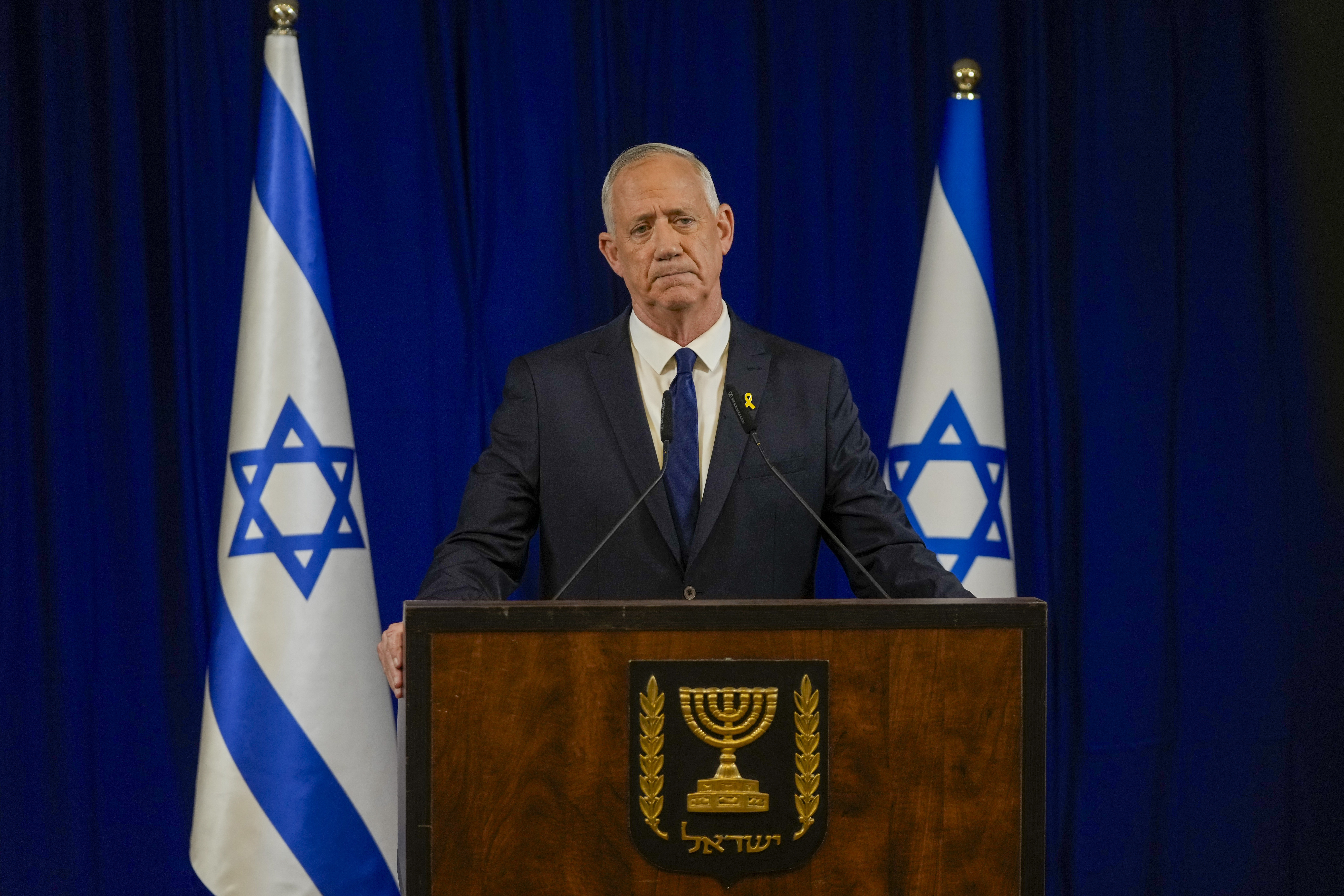
Israel's military announced on Sunday that it would pause fighting throughout daytime hours along a route in southern Gaza to free up a backlog of humanitarian aid deliveries destined for desperate Palestinians enduring a humanitarian crisis sparked by the war, now in its ninth month.
The “tactical pause” announced by the military, which applies to about 12 kilometers (7.4 miles) of road in the Rafah area, falls far short of a complete cease-fire in the beleaguered territory that has been sought by the international community, including Israel's top ally, the United States. If it holds, the limited halt in fighting could help address some of the overwhelming needs of Palestinians that have surged even more in recent weeks with Israel's incursion into Rafah.
The army said the pause would begin at 8 a.m. (0500 GMT) and remain in effect until 7 p.m. (1600 GMT). It said the pauses would take place every day until further notice.
Get Tri-state area news delivered to your inbox.> Sign up for NBC New York's News Headlines newsletter.
The pause is aimed at allowing aid trucks to reach the nearby Israel-controlled Kerem Shalom crossing, the main entry point for incoming aid, and travel safely to the Salah a-Din highway, a main north-south road, the military said. The crossing has suffered from a bottleneck since Israeli ground troops moved into Rafah in early May.
COGAT, the Israeli military body that oversees aid distribution in Gaza, said the route would increase the flow of aid to other parts of Gaza, including Khan Younis, Muwasi and central Gaza. Hard-hit northern Gaza, which was an early target in the war, is being served by goods entering from a crossing in the north.
The military said the pause came after discussions with the United Nations and international aid agencies.
Aid agencies, including the U.N., did not immediately respond to requests for comment.
The pause along the southern route comes as Israel and Hamas are weighing the latest proposal for a cease-fire, a plan that was detailed by President Joe Biden in the administration’s most concentrated diplomatic push for a halt to the fighting and the release of hostages taken by the militant group. While Biden described the proposal as an Israeli one, Israel has not fully embraced it and Hamas has demanded changes that appear unacceptable to Israel.
Israel’s eight-month military offensive against the Hamas militant group, sparked by the group's Oct. 7 attack, has plunged Gaza into a humanitarian crisis, with the U.N. reporting widespread hunger and hundreds of thousands of people on the brink of famine. The international community has urged Israel to do more to ease the crunch and has said the ongoing fighting, including in Rafah, has complicated aid deliveries throughout the war.
From May 6 until June 6, the U.N. received an average of 68 trucks of aid a day, according to figures from the U.N. humanitarian office, known as OCHA. That was down from 168 a day in April and far below the 500 trucks a day that aid groups say are needed.
The flow of aid in southern Gaza declined just as the humanitarian need grew. More than 1 million Palestinians, many of whom had already been displaced, fled Rafah after the invasion, crowding into other parts of southern and central Gaza. Most now languish in ramshackle tent camps, using trenches as latrines, with open sewage in the streets.
COGAT says there are no restrictions on the entry of trucks. It says more than 8,600 trucks of all kinds, both aid and commercial, entered Gaza from all crossings from May 2 to June 13, an average of 201 a day. But much of that aid has piled up at the crossings and not reached its final destination.
A spokesman for COGAT, Shimon Freedman, said it was the U.N.’s fault that its cargos stacked up on the Gaza side of Kerem Shalom. He said the agencies have “fundamental logistical problems that they have not fixed,” especially a lack of trucks.
The U.N. denies such allegations. It says the fighting between Israel and Hamas often makes it too dangerous for U.N. trucks inside Gaza to travel to Kerem Shalom, which is right next to Israel’s border.
It also says the pace of deliveries has been slowed because the Israeli military must authorize drivers to travel to the site, a system Israel says was designed for the drivers’ safety. Due to a lack of security, aid trucks in some cases have also been looted by crowds as they moved along Gaza’s roads.
The new arrangement aims to reduce the need for coordinating deliveries by providing an 11-hour uninterrupted window each day for trucks to move in and out of the crossing.
It was not immediately clear whether the army would provide security to protect the aid trucks as they moved along the highway.



